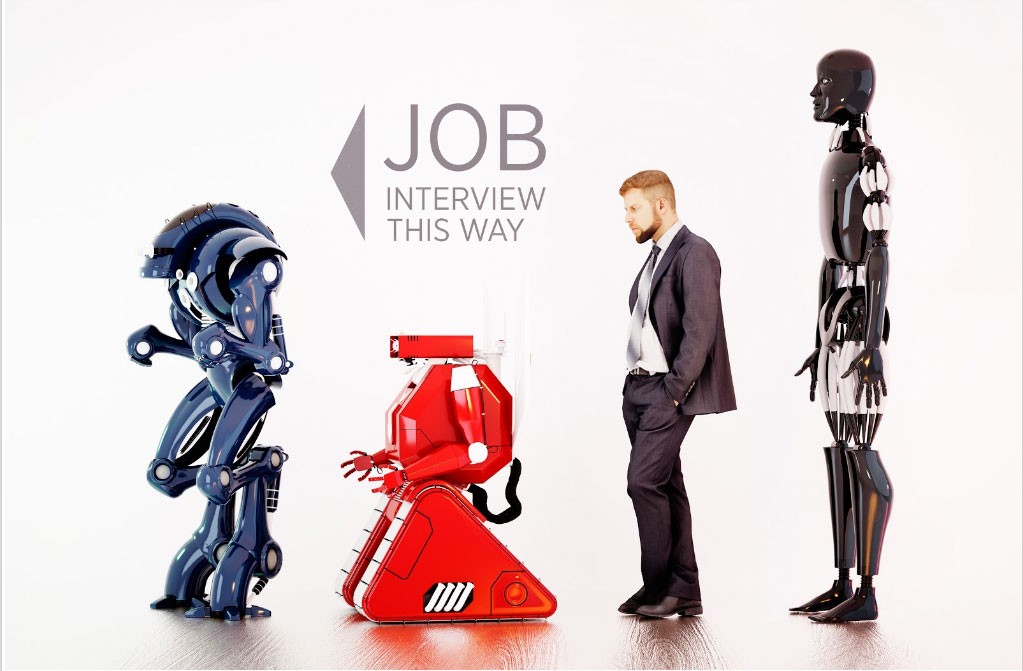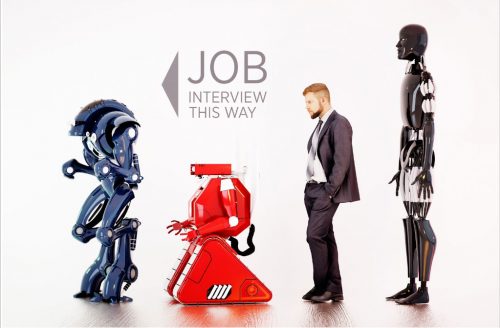Should Robots Pay Taxes?

What may have been a strange question a decade ago is becoming much more relevant as technology rapidly progresses. Put into the public conversation by several prominent figures in society, the question has been raised amid fears that mass automation is on track to displace a large sector of the workforce. While the ideology behind those calling for a tax varies, the two most common uses for the proposed tax are to either retrain the displaced workers or to provide a basic income if no other job prospects are available.
Although the day hasn't arrived where robots have taken over many jobs, the potential for automation to create mass inequality exists. Automating processes in the working world isn't a new concept, and it has existed long before even the most basic robots came on the scene.
It should also be noted that society is often the driving and demanding force behind these innovations. Whether beholden to shareholders or their own bottom line, the job of company executives is to increase productivity and decrease costs. Consideration for the effects on the larger market as a whole have historically taken a back seat to increased profit margins.
Although their presence has become second nature in many industries, robotics and other forms of job automation have yet to create a mass displacement of workers. In fact, so far their implementation in the workplace has had a different effect: creating opportunities for human workers to work alongside robots in complementary positions or assisting humans by taking on some of the more dangerous jobs and reducing risks to the human capital.
The automated teller machine (ATM) is an example of automation that appeared on the outset to fully replace their human counterparts completely. The reality of their implementation was that they drove down costs of running a branch, so more branches were opened, which ultimately created more human bank teller jobs. The technology did disrupt the position, however, and led to human tellers doing more sales of financial instruments and less dispensing of cash.
Those in favor of the tax argue that the difference with today's innovations is that technology, combined with increased artificial intelligence, may soon create a machine like an automated teller than can effectively dispense cash as well as sell financial instruments, such as a mortgage, leaving the human tellers without effective recourse to any type of work in their field.
This type of human replacement doesn't necessarily disrupt the workflow from the top of a company down. In the example of banking, the automated tellers are still delivering the same, if not more, of the financial sales and services, which won't negatively affect the profit of a company. That company, however, will no longer incur human costs, such as an hourly wage, overtime, sick pay, insurance and employment taxes.
Employment taxes, which are usually shared between the employer and employee, account for 47 percent of the government's year tax revenue. Without employees to be taxed, the government stands to lose a significant portion of it's annual revenue, while those who are at the helm of the companies that have replaced their human capital with machines stand to gain massively from the profits gained.
A tax on robots at similar tax rates that humans pay could stand to level the playing field and provide those displaced by automation a guaranteed basic income. Opponents of the tax argue that it would create an undue burden on industry and actually slow down innovation.
The practicality of such a proposed tax is that it would be much closer to a tax increase on the financial capital of the companies that employ the use of robots. Individual machines filing 1099s is not the vision. The reason it's presented as a tax on single robots is partly due to the belief that it could reduce tax avoidance.
The reasoning is that a tax on a single robot could also be deductible, thus providing more motivation for the company to declare it. In addition, where companies currently move significant portions of their holdings overseas to less taxed zones, this wouldn't actually tax their capital, but the working hours wherever the company operates with robotics.
Even if jobs are eventually lost en masse to robots, there may be more effective ways of maintaining income equality that stem from government policy, not a direct taxation. The government, in one example, could begin investment through a sovereign wealth fund. That fund would invest tax revenue into real estate and stocks, while distributing the profits across the populace. This would benefit citizens directly by giving them a personal interest in the success of automation, without threatening their livelihood.
Perhaps one of the chief arguments against a tax on automation is that it's very difficult to determine which robots replace human workers and which robots complement their job opportunities. Very few people predicted the positive outcome of implementing ATMs. Even dating back to the invention of the loom, that only allowed for workers to be trained in operating it rather than weaving clothing by hand -- an innovation that made clothing more affordable to the wider masses.
The reality is that progress is hard to fight. This becomes even more difficult to predict in the future, as the human jobs that automation creates can't yet be known. Taxes on robots might slow down their innovation, but it will not make it inevitable. History has shown that the ingenuity of humanity has long been able to work tirelessly with a changing playing field, and this change in the potential nature of the workforce only provides humans with the opportunity to prove their ability to innovate once again.
Sources
https://www.theguardian.com/technology/2017/mar/02/robot-tax-job-elimination-livable-wage
https://www.bloomberg.com/view/articles/2017-02-28/what-s-wrong-with-bill-gates-robot-tax
http://www.businessinsider.com/bill-gates-robot-tax-brighter-future-2017-3
Thanks for helping to keep our community civil!
Notify staff privately
You flagged this as spam. Undo flag.Flag Post
It's Spam
This post is an advertisement, or vandalism. It is not useful or relevant to the current topic.
This post is an advertisement, or vandalism. It is not useful or relevant to the current topic.
You flagged this as spam. Undo flag.Flag Post



